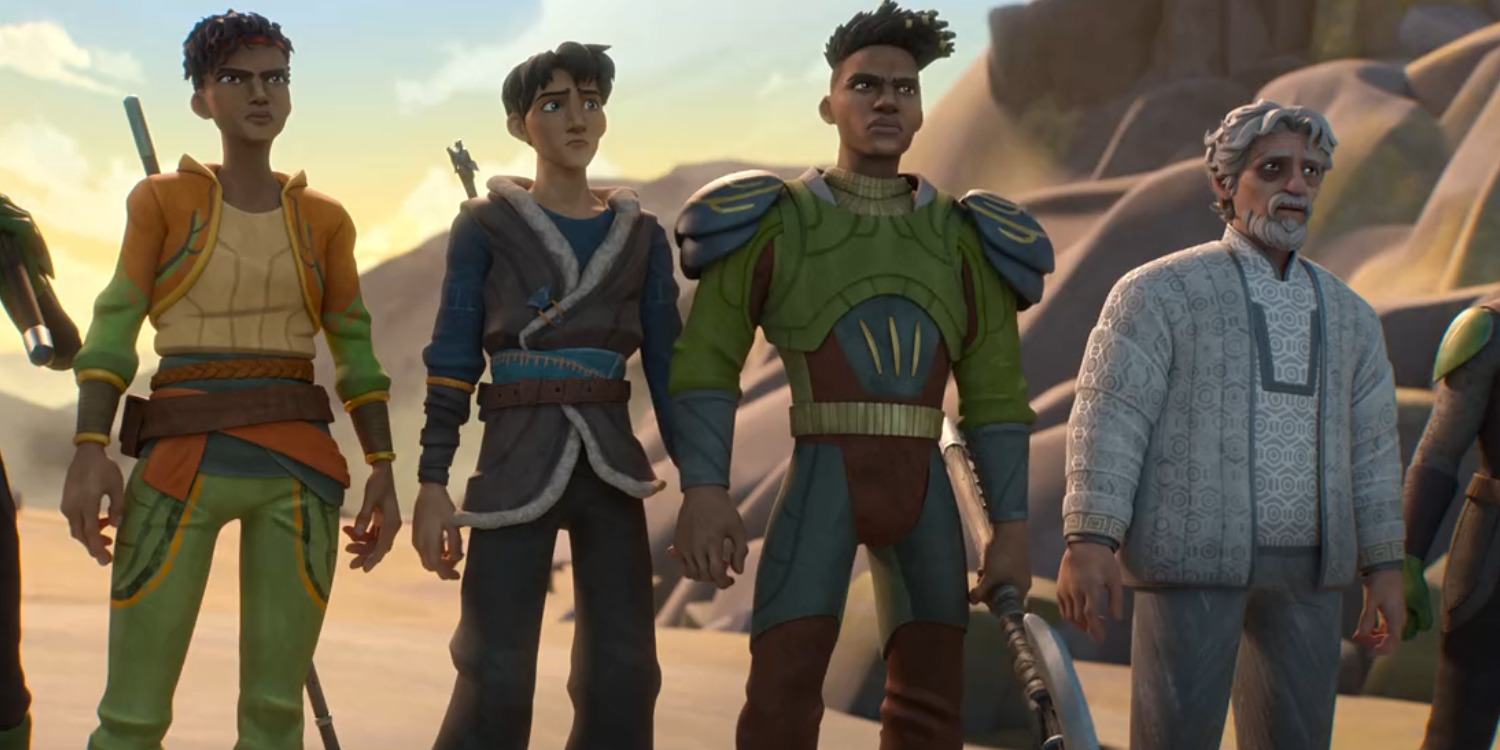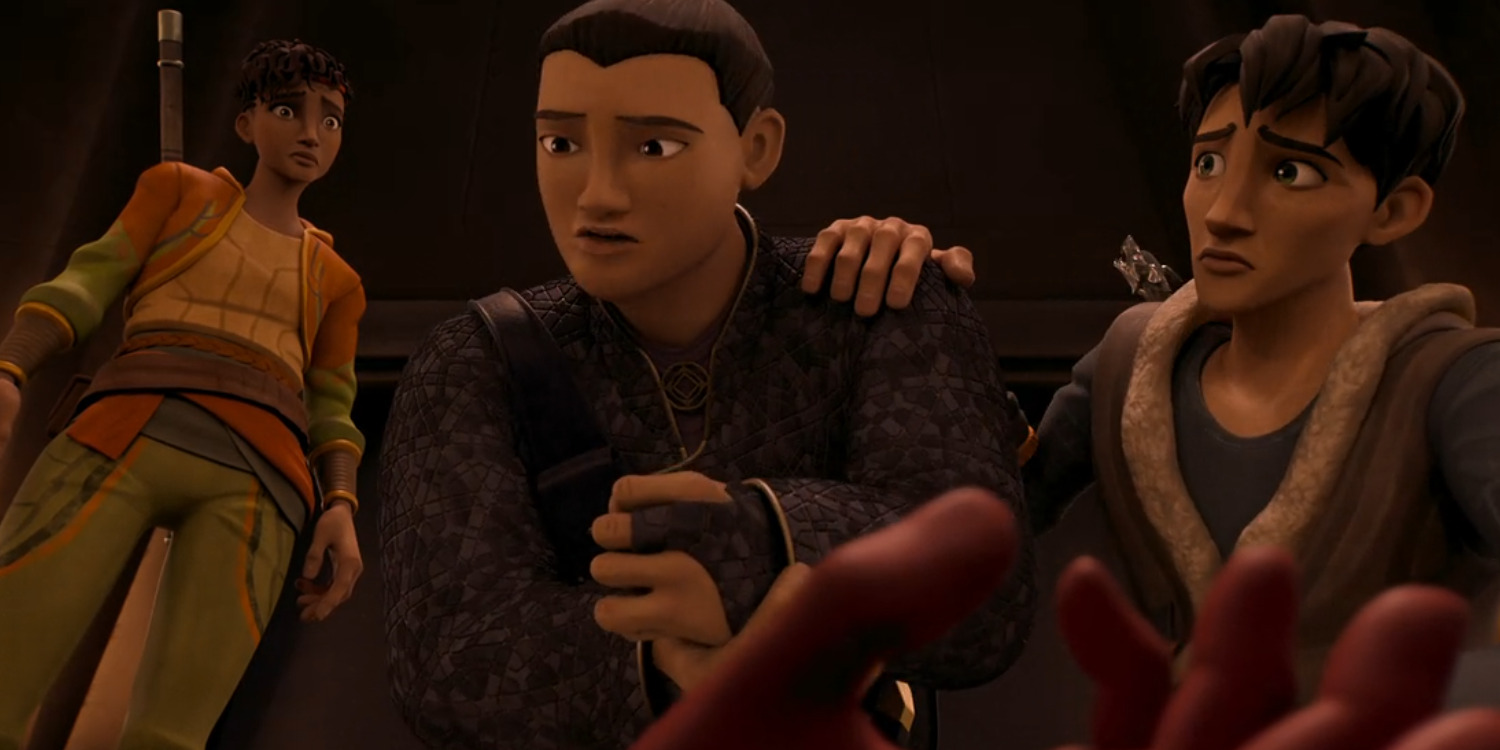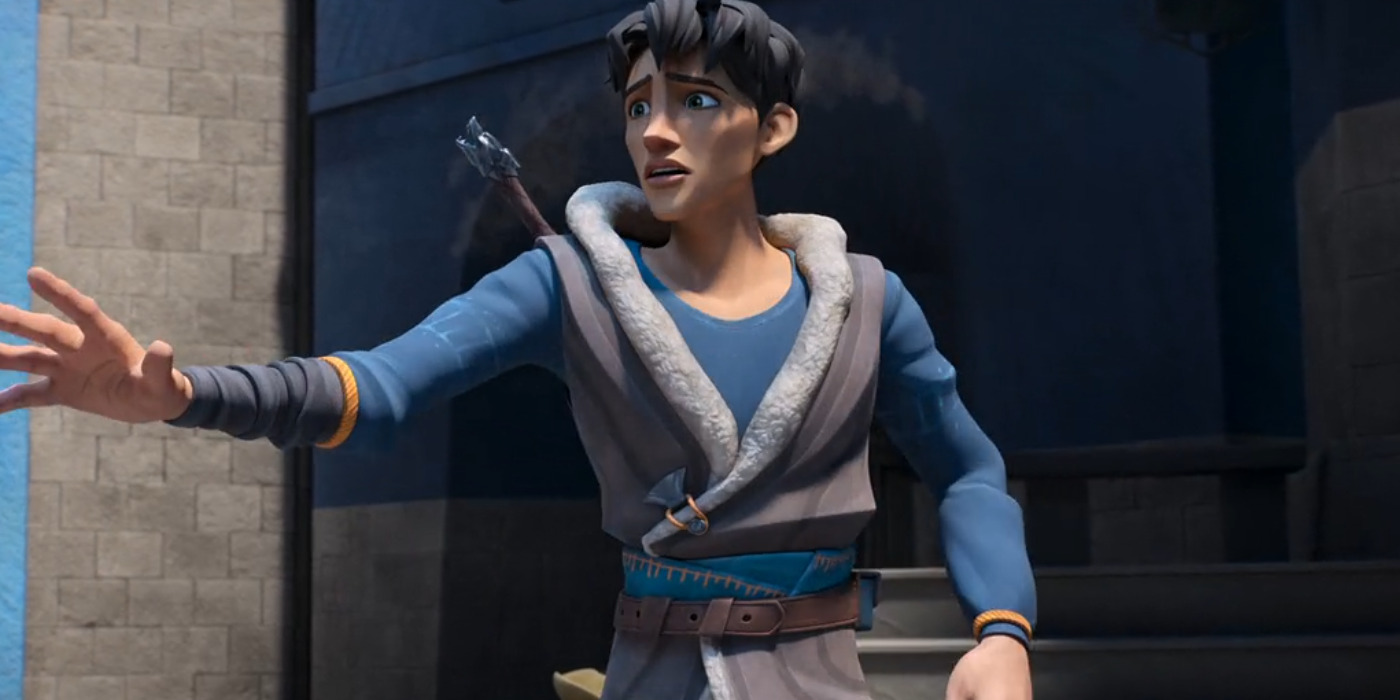Netflix’s ‘Wolf King’ follows the story of a revolution as it unfolds in a world ruled by shapeshifters of various kinds. Drew Ferran leads the narrative as the protagonist who unearths his royal Wolflord heritage on the same day as his mother’s tragic death. From thereon out, the 16-year-old goes on to travel across the many kingdoms of Lyssia, making friends and enemies alike. His biggest allies are werebear Whitley, Magister Hector, and Princess Gretchen of the Hedgemoors. Together, the band of young rebels manages to overthrow the oppressive rule of Leopold, the werelion. However, in season 2, the ousted leader’s heir, Lucas, poses new threats as his ploy at regaining the throne receives backing from the other Catlords of Bast. The season ends with our heroes in peril as the kingdom of Highcliff is once more lost, this time with patricidal Lucas on the throne. Therefore, given the haywire nature of the ending, the show’s cancellation comes as a natural shock for the fans.
Wolf King Was Intended to be a Two-Season Series
‘Wolf King’ is an on-screen adaptation of author Curtis Jobling’s ‘Wereworld’ book series. Reportedly, when Netflix originally began development on the animated show, it ordered the project with only two seasons. Thus, the series was always headed toward a cancellation following a two-season run. Jobling, whose work the show adapts, albeit with a few creative liberties at play, was intimately involved with the creation of the series. While season 1 more closely follows the events of the first novel, ‘Rise of the Wolf,’ season 2 finds a close association with ‘Rage of Lions.’ Additionally, the storyline in the latter farms influence and inspiration from he rest of the literary series, introducing elements from across the following installments. In a conversation with What’s On Netflix, the author spoke about his relationship with the adaptation as the head writer and producer.

Jobling said, “The novels are very linear in structure, with the first one told entirely from our hero, Drew Ferran’s perspective. As we move into the second book and beyond, and our protagonists (and antagonists) get pulled apart, the novels begin to expand in shape, following different storylines whilst Drew’s tale remains at the heart of the entire story. With that in mind, it was pretty easy to follow the shape and structure of the novels. The challenge for us, with an enormous cast of source characters, was to work out just how many of them could feature in our show. Hopefully, we’ve made the fans of the original novels very happy indeed. I know I am, if that counts for anything.”
Wolf King Concludes on an Unfortunate Cliffhanger
With the confirmation that ‘Wolf King’ will not be returning for season 3, the series finds an inconclusive ending. Season 1 had ended on a satisfactory note, with many of the major plot points relating to Drew’s hero’s journey addressed or entirely resolved. The last Wolflord was promised to take on the throne of his kingdom and lead his people away from the tyrannical rule of the Catlords of Bast. However, season 2 unravels the less-than-ideal aftermath of Leopold’s loss in the battle of Highcliff. Thus, the second installment of the show starts with a storyline that is faithful to ‘Rage of Lions,’ the second novel in the ‘Wereworld’ series. However, this also means that as the narrative introduces more elements and plot points, it runs short on time to resolve every new introduction.

As such, season 2 charts a riveting journey full of action, fascinating world-building, and intriguing lore. Yet, the ending of the narrative leaves the viewers with infinitely more questions. From the fate of the protagonists and their interpersonal relationships to the geopolitical developments that are bound to take place in Lyssia with the change in power, the season 2 finale leaves many threads untangled. As it stands, the show ends with Drew stranded on an enemy ship in the bounds of a new villain, Kesslar the Goatloard, who remains blanketed in an air of mystery. Meanwhile, Gretchen and Whitley have just lost the battle they tried to wage on Cape Gala, leaving their and other werelords and Romari allies’ future up in the air.
As for Hector, his narrative gets cut short right as it begins to take a dark turn. The young magister’s interest in necromancy seems to have just started to catch up to him in all the wrong ways. Nonetheless, season 2’s ending leaves it open-ended with no clear direction in sight. Lastly, even the antagonist, Luca’s character, suffers from the cancellation. The bold choice he makes about killing his own father to lay his claim to his throne remains one of the more interesting moves made by his character. Yet, fans won’t be able to see the consequences of his or any other character’s actions. Consequently, the series remains authentic to its source material in that it requires a few more installments to find an actual, conclusive end. For the same reason, the cancellation of season 3 significantly impacts the flow of the storyline.
Read More: Wolf King Season 3: Why Was it Canceled?


You must be logged in to post a comment.